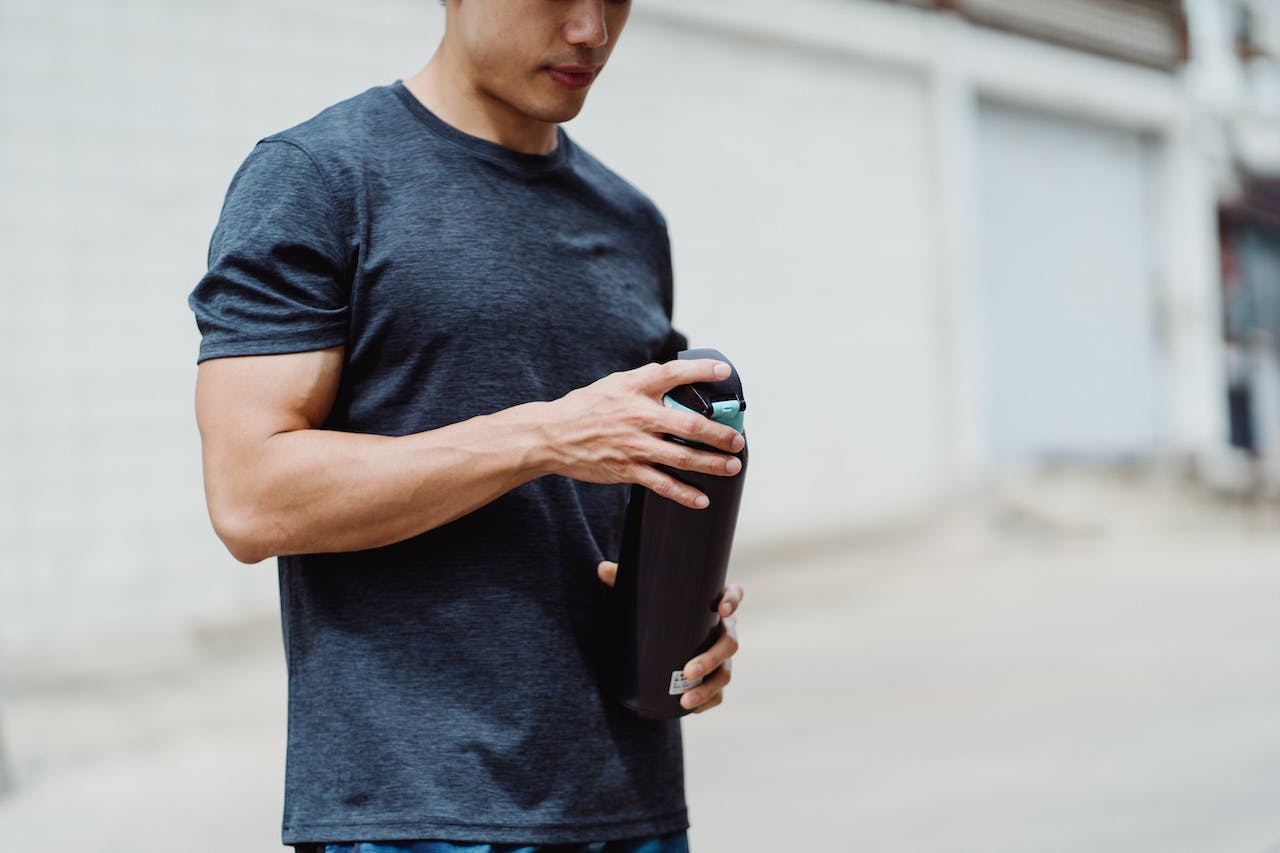
Staying hydrated is fundamental to maintaining overall health and optimising bodily functions. Optimal hydration is integral to digestion, nutrient absorption, temperature regulation and waste elimination.
This section will explore key aspects of staying hydrated, from daily water intake recommendations to the impact of different beverages and the role of fluids in your diet.
Optimal Hydration
Daily Water Intake:
Aim to consume at least 2 litres (approximately 8 cups) of water daily. However, this baseline may need adjustment based on physical activity levels and environmental conditions. Increasing water intake is vital for vigorous exercise or when residing in hot climates to counteract potential dehydration.
Stay Reminded:
Carry a reusable water bottle with you throughout the day. This simple practice serves as a visual reminder to maintain consistent hydration. If plain water feels monotonous, consider infusing it with natural flavours like citrus fruits or berries. A 100% fruit juice splash can also provide a touch of natural sweetness.
Listen to Your Body
- Thirst Cues. Your body’s signals are crucial indicators of hydration needs. Pay attention to thirst cues and drink water when you feel thirsty. Thirst is your body’s signalling that it requires more fluids to function optimally.
- Water-Rich Foods. Incorporate water-rich foods like fruits and vegetables into your diet. These foods contribute to hydration and provide essential nutrients and fibre, promoting overall wellness.
Navigating Beverage Choices
Many beverages and liquids contain hidden calories that can hinder your progress. Full cream milk, sodas, and other sugary drinks pack a significant caloric punch. Moreover, beverages are processed faster than solid foods, leading to less satiety and potential overconsumption.
Opt for Low-Calorie Fluids:
Choose low-calorie fluids to help manage hunger and calorie intake. Carbonated beverages can provide extra satiation due to their bubbles. Embrace alternatives like water, zero-calorie cordials, low-fat milk and diet sodas to quench your thirst without compromising your progress.
Coffee & Green Tea: Energising Hydration
Satiating Effect:
Coffee and green tea offer more than a caffeine boost. Studies suggest these beverages are satiating, contribute to weight management and reduce body fat mass.
Pairing with Hydration:
Enjoy your coffee and green tea while being mindful of calorie additions. Opt for no-calorie or low-calorie additives to maximise the benefits of these beverages without negating their effects.
Alcohol: Moderation and Awareness
Caloric Impact:
Alcoholic beverages are often high in calories and lack essential nutrients. With approximately seven calories per gram of alcohol, they can quickly contribute to caloric excess. Wines, beers, and spirits can carry over 100 calories per serving.
Consider Moderation:
Mindful alcohol consumption is crucial for weight management and overall well-being. Excessive alcohol intake adds empty calories and affects your subsequent performance and energy expenditure.



